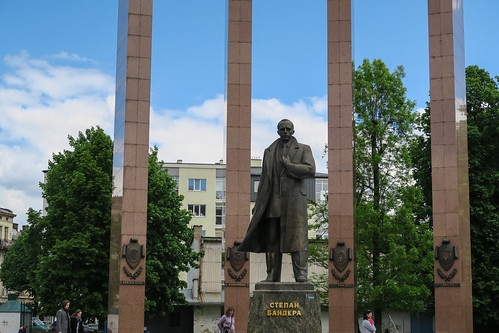Putin's order to begin partial mobilization of Russian military forces continues a confrontation between Russia and a U.S. led coalitions of Western nations that began at the end of the Cold War.
War is never a solution - there are always alternatives that could have and should have been pursued by those entrusted with the fate of global society before the order was given to send the youth of a nation to go off to fight and die. Any national leader worth his or her salt should seek to exhaust every other possibility to resolve issues confronting their respective countries.
If viewed in a vacuum, the announcement of Russian President Vladimir Putin Wednesday, in a televised address to the Russian people, that he was ordering the partial mobilization of 300,000 military reservists to supplement some 200,000 Russian personnel currently engaged in combat operations on the soil of Ukraine would appear to be the antithesis of seeking an alternative to war.
This announcement was made in parallel with one that authorized referendums to take place on the territory of Ukraine currently occupied by Russian forces regarding the question of joining these territories with the Russian Federation.
Seen in isolation, these actions would appear to represent a frontal assault on international law as defined by the United Nations Charter, which prohibits acts of aggression by one nation against another for the purpose of seizing territory by force of arms. This was the case made by U.S. President Joe Biden when speaking at the United Nations General Assembly, hours after Putin's announcement.
"A permanent member of the United Nations Security Council invaded its neighbor, attempted to erase a sovereign state from the map," Biden said. "Russia has shamelessly violated the core tenets of the United Nations Charter."
History, however, is a harsh mistress, where facts become inconvenient to perception. When viewed through the prism of historical fact, the narrative being promulgated by Biden becomes flipped. The reality is that since the collapse of the Soviet Union at the end of 1991, the U.S. and its European allies have been conspiring to subjugate Russia in an effort to ensure that the Russian people are never again able to mount a geopolitical challenge to an American hegemony defined by a "rules based international order" that had been foisted on the world in the aftermath of the Second World War.
For decades, the Soviet Union had represented such a threat. With its demise, the U.S. and its allies were determined to never again allow the Russian people - the Russian nation - to manifest themselves in a similar manner.
When Putin spoke about the need for "necessary, urgent steps to protect the sovereignty, security, and territorial integrity of Russia" from "the aggressive policies of some Western elites who try by any means necessary to maintain their supremacy," he had this history in mind.
The aim of the U.S. and its Western allies, Putin declared, was "to weaken, divide, and ultimately destroy our country", by promulgating policies designed to cause "Russia itself to disintegrate into a multitude of regions and territories that are deadly enemies with one another." According to Putin, the U.S. led West "purposefully incited hatred of Russia, particularly in Ukraine, for which they destined the fate of an anti-Russian beachhead."
Newton's Third Law of Motion - that for every action there is an equal and opposite reaction - applies to geopolitics as well.
On Feb. 24, Putin issued orders for the armed forces of Russia to initiate what he termed a "Special Military Operation" (SMO) in Ukraine. Putin declared that this decision was in keeping with Article 51 of the United Nations Charter and the principles of collective preemptive self-defense as defined by international law.
The goals of this operation were to protect the newly independent republics of Lugansk and Donetsk - referred collectively as the Donbass region - from an imminent danger posed by a build-up of Ukrainian military forces which were, according to Russia, poised to attack.
The stated goal of the SMO was to safeguard the territory and people of the Lugansk and Donetsk republics by eliminating the threat posed by the Ukrainian military. To accomplish this, Russia embraced two primary objectives - 'demilitarization and denazification'.
(Note: You can view every article as one long page if you sign up as an Advocate Member, or higher).






